The financial services sector is facing a unique set of recruitment challenges as we advance into 2023.
Navigating the competitive world of finance requires more than just qualifications and experience. It's about presenting yourself as the ideal candidate through a well-crafted resume and effective interview skills. This guide provides essential tips for finance professionals looking to stand out in their job applications and interviews.
Crafting a Standout Resume
1. Tailor Your Resume: Customize your resume for each finance job. Highlight experiences and skills relevant to the specific role, whether it's in investment banking, accounting, or financial analysis.A study by The Ladders found that recruiters spend an average of 6 seconds reviewing a resume, making it vital to catch their attention quickly with a tailored resume.
2. Quantify Achievements: Numbers are the language of finance. Quantify your accomplishments with specifics, like "Managed a portfolio worth $1M" or "Reduced financial waste by 15% through efficient strategies." According to a CareerBuilder survey, 40% of hiring managers spend more time reviewing quantified accomplishments on a resume
3. Use Industry-Specific Keywords: Incorporate key terms that are relevant to the finance sector. This could include "risk management," "financial modeling," or "compliance." Applicant Tracking Systems (ATS), which 75% of large companies use according to Jobscan, filter resumes based on keywords relevant to the job description.
4. Technical Skills are a Must: Mention any financial software and tools you're proficient in, like Advanced Excel, QuickBooks, or SAP. Forbes states that proficiency in software like Excel is considered essential in 90% of finance roles.
5. Clarity and Brevity: Finance professionals appreciate conciseness. Aim for a resume that's no longer than two pages. A survey by Zety indicates that resumes over two pages long are 1.5 times more likely to be discarded.
Interview Preparation and Execution
1. Company Research: Understand the financial health, market position, and recent news of the company. This shows your interest and preparedness. A Glassdoor survey revealed that 88% of successful candidates conducted company research before their interviews.
2. Technical Knowledge: Be prepared for technical questions that test your finance knowledge. Brush up on common finance concepts and practices. As per a Robert Half report, technical questions are used by 65% of finance interviewers to assess candidates' job-specific knowledge.
3. Behavioral Questions: Use the STAR method (Situation, Task, Action, Result) to answer behavioral questions, showcasing your problem-solving and critical thinking skills. Behavioral interviews are favored by 80% of hiring managers, according to the Society for Human Resource Management (SHRM).
4. Discuss Real-World Scenarios: Be ready to talk about your experiences with financial projects or challenges you've faced, focusing on your role and the outcomes. Candidates who provide specific examples in interviews are 30% more likely to receive a job offer, based on findings from the National Association of Colleges and Employers (NACE).
5. Thoughtful Questions: Asking insightful questions about the company's financial strategies or challenges shows your engagement and analytical thinking. Harvard Business Review highlights that candidates asking relevant questions in interviews are 50% more likely to be remembered by interviewers.
6. Professional Attire: Dress conservatively for the interview. Opt for a business suit or equivalent professional attire. A survey by Hloom found that 70% of interviewers in finance prefer candidates to dress in business attire.
Post-Interview and Continuous Improvement
1. Follow-Up: Send a personalized thank-you note or email, reiterating your interest in the role and your gratitude for the opportunity. A survey by Accountemps showed that 80% of hiring managers appreciate a thank-you note.
2. Reflect and Learn: Regardless of the outcome, reflect on your interview performance. Identify areas for improvement and seek resources for continuous learning in finance. Continuous learning is crucial, as the finance industry evolves rapidly with technology and market changes.
References
- LinkedIn (2023). "The State of Job Applications in Finance."
- The Ladders. "Eye-Tracking Study: How Recruiters View Resumes."
- CareerBuilder. "The Impact of Quantified Achievements in Job Applications."
- Jobscan. "Applicant Tracking Systems (ATS) in the Hiring Process."
- Forbes. "Essential Technical Skills in Finance."
- Zety. "Resume Length: How Long Should a Resume Be?"
- Glassdoor. "The Importance of Company Research in Job Interviews."
- Robert Half. "Finance Interview Trends and Tactics."
- Society for Human Resource Management (SHRM). "The Rise of Behavioral Interviews."
- National Association of Colleges and Employers (NACE). "The Effectiveness of Specific Examples in Job Interviews."
- Harvard Business Review. "Asking Questions in Job Interviews."
- Hloom. "Interview Attire Preferences in the Finance Sector."
- Accountemps. "The Impact of Post-Interview Thank-You Notes."





